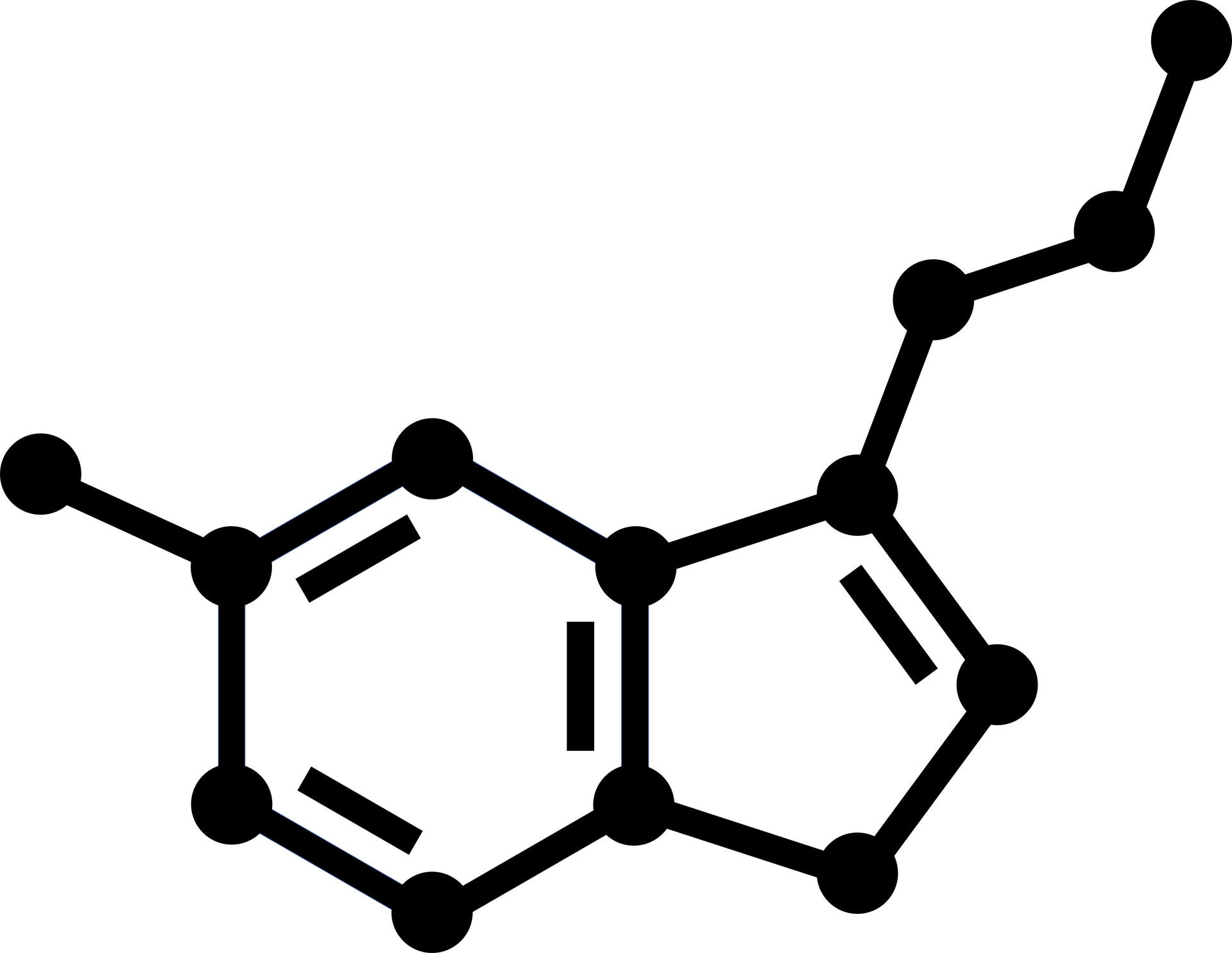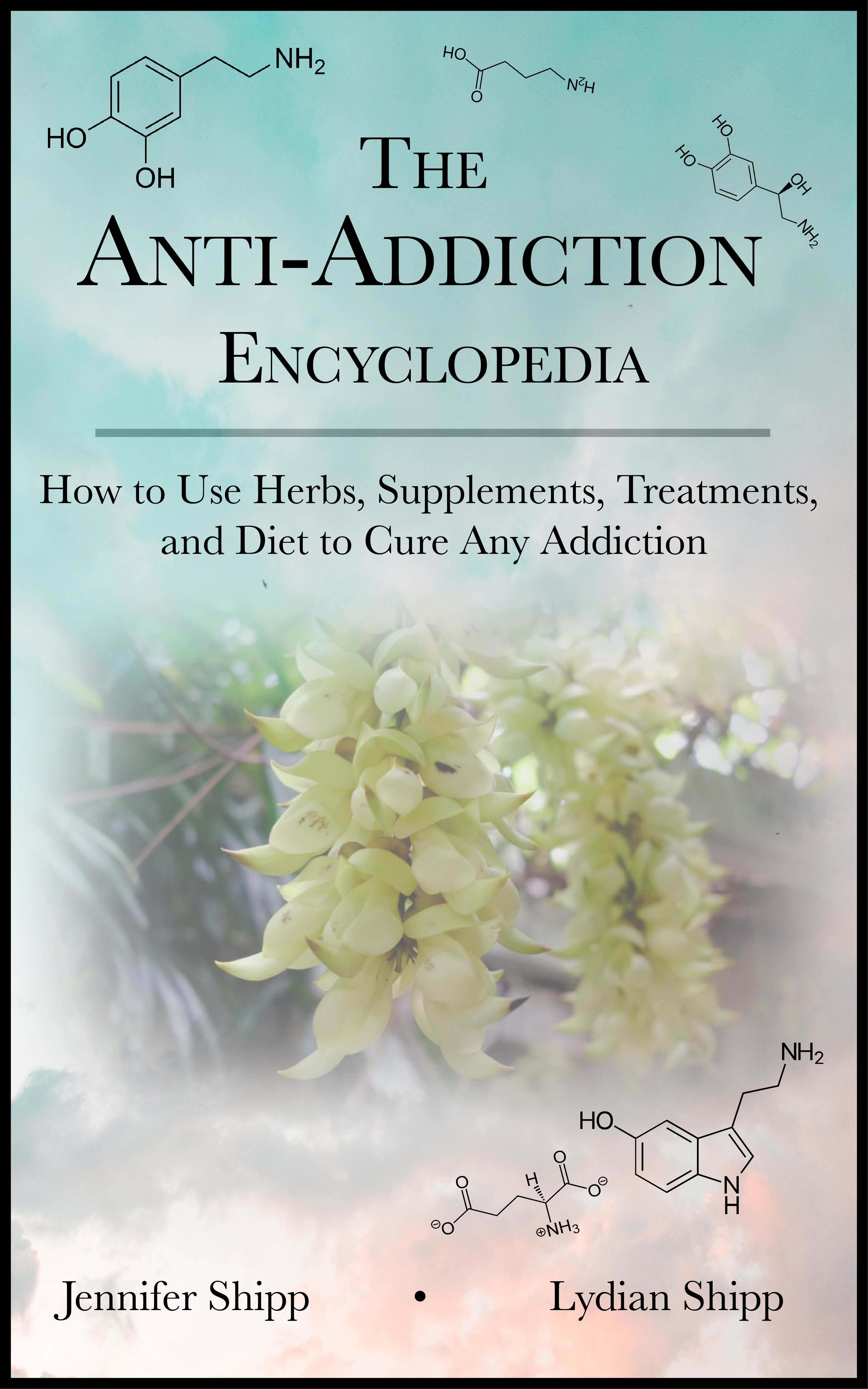5-Hydroxytryptophan: Serotonin Precursor Treatment for Addiction
 5-Hydroxytryptophan, also known as 5 HTP, or oxitriptan, is a naturally occurring amino acid and a serotonin precursor as well as a metabolic intermediate that readily turns into serotonin without any limiting biochemical feedback. It first became available over-the-counter in the United States in the spring of 1995. Prior to this time, it was only available by prescription. It has been used to treat a variety of different disorders including substance abuse and many people find relief from depression using 5HTP. On the other hand, however, depending on the cause of the depression 5HTP can also cause a worsening of symptoms. 2 4 5 9
5-Hydroxytryptophan, also known as 5 HTP, or oxitriptan, is a naturally occurring amino acid and a serotonin precursor as well as a metabolic intermediate that readily turns into serotonin without any limiting biochemical feedback. It first became available over-the-counter in the United States in the spring of 1995. Prior to this time, it was only available by prescription. It has been used to treat a variety of different disorders including substance abuse and many people find relief from depression using 5HTP. On the other hand, however, depending on the cause of the depression 5HTP can also cause a worsening of symptoms. 2 4 5 9
In Europe, 5-Hydroxytryptophan (5-HTP) is marketed under the following names:
- Cincofarm
- Levotonine
- Oxyfan
- Levothym
- Triptum
- Telesol
- Tript-OH 4
Serotonin levels have an important impact on various aspects of well-being and the presence of 5-HTP can impact levels of serotonin in the body. Various disorders and dysfunctions have been treated using 5-HTP including:
- Sleep regulation
- Aggression levels
Studies in animals have shown that higher serotonin levels caused by 5-HTP supplementation may in some cases increase aggression or inhibit it depending on the species of animal, length of the treatment, and the type of aggression. Overall, 5-HT (serotonin) has an inhibitory effect on aggression, but some variability exists in terms of how different animals respond to increased levels of this neurotransmitter. 1 10
- Appetite
- Depression
- Anxiety
- Body temperature
- Pain regulation
- Sexual behavior 6
The therapeutic use of 5-HTP as a supplement has shown effectiveness at treating the following conditions:
- Fibromyalgia
- Depression
- Obesity and binge eating
- Addictions
5-HTP has been used off-label in combination with a drug called carbidopa to treat obesity.
- Insomnia
- Autism
- Down’s Syndrome
- Alzheimer’s Disease
- Epilepsy
- Myoclonus
- Cerebellar ataxia
- Alcoholism
- Premenstrual Syndrome (PMS)
- Post-MDMA dysphoria and MDMA withdrawal treatment
5-HTP is sometimes taken to relieve post-MDMA dysphoria. MDMA depletes the person’s natural serotonin levels and anecdotal reports indicate that administration of 5-HTP may assist MDMA users in becoming abstinent.
- Chronic headaches
Research on the effects of 5-HTP on headaches has been inconclusive.
In one case study, a 53-year old woman who was not able to tolerate the side effects of clonipine, was relieved of her muscle spasms by 200 mg of 5-HTP following by 100 mg nightly thereafter until her symptoms improved. 1 4 6 11 13
The Use of 5-HTP for Methamphetamine Withdrawals / 5-HTP for Opiate Withdrawals
5-HTP has been used to help people through withdrawals from drugs that cause a depletion of serotonin levels in the brain. Below are drugs that are known to deplete serotonin levels:
- Methamphetamine
- Opiates
- Hydrocodone
- Oxycodone
- Oxycontin
- Heroin
- Etc.
- MDMA
Administration of 5-HTP can help alleviate certain symptoms of withdrawal by reducing pain sensitivity, inducing natural sleep, acting as a non-pharmaceutical anti-depressant, relieving tension and anxiety as well as headaches, and aiding in the general control over the addiction process. Ideally, 5-HTP should be taken along with a vitamin B complex in the morning and in the evening. 13
The Use of 5-HTP for Depression
Certain types of depression and other mental health issues result from low levels of serotonin in the brain. Pure serotonin cannot cross the blood-brain barrier, but 5-HTP, the immediate percursor to serotonin can easily cross this barrier where it is then converted into serotonin. There is no biochemical feedback inhibition to prevent the brain from transforming the 5-HTP into serotonin. What this means is that very high doses of 5-HTP could theoretically be converted into very high, and possibly toxic levels of serotonin in the brain. Non-biochemical factors that can influence the metabolism of 5-HTP into serotonin include the following:- Stress
- Vitamin B6 deficiency
- Insulin resistance
- Magnesium deficiency 1 2
Currently the only rate-limiting step known to scientists that limits the amount of serotonin produced in the brain after the ingestion of 5-HTP is the enzyme L-aromatic amino acid decarboxylase (AAAD). This enzyme causes the conversion of 5-HTP into serotonin. As such, it has been used therapeutically to treat depression, anxiety, obesity (5-HTP acts as an appetite suppressant) addictions (particularly opioid withdrawals), and a variety of other neurological conditions. 2. 6
5-HTP Dosing
Experts who have worked with 5-HTP differ in terms of the doses they recommend. According to Drugs.com, the recommended dosage is 200 to 300 mg per day given throughout the day in 3 to 4 divided doses (e.g. 100 mg, 4 times per day). But 5-HTP can have dangerous drug interactions with anti-anxiety and anti-depressant medications as well as certain street drugs like methamphetamines. So, individuals who are taking 5-HTP for depression, anxiety, or meth addiction treatment at home must be aware that 5-HTP should not be mixed with other drugs and in fact, it’s important to separate the use of these other chemicals from the use of 5-HTP for up to 2 weeks. 1 8Some experts recommend taking 5-HTP in dosages between 20 to 3,250 mg per day. 5-HTP has a short half-life of less than 2 hours, which means that its effects don’t last very long in the body. Frequent dosing is necessary to maintain therapeutic levels. Without supplementation with 5-HTP, the availability of endogenous (naturally and internally-occurring) 5-HTP depends on the availability of tryptophan from the diet. Tryptophan is metabolized into 5-HTP and then 5-HTP is metabolized into serotonin. 1 3 4 5 8
L-Tryptophan vs. 5-HTP
L-Tryptophan + Tryptophan hydroxylase = 5-Hydroxytryptophan. 55-Hydroxytryptophan + Decarboxylase = Serotonin (5-HT). 5
In theory, a person could take L-tryptophan supplements to increase serotonin levels, but there are several reasons why experts recommend the use of 5-HTP over L-tryptophan:
- Eisonophilia myalgia syndrome
This rare but sometimes fatal neurological condition has been linked to the ingestion of L-Tryptophan. Larger doses and increasing age increase the risks associated with taking this supplement. This disorder is characterized by eosinophilia and myalgia (muscle pain). Epidemiological studies have shown that the 1989 outbreak of eisonophilia myalgia syndrome was linked to a specific Japanese manufacturer. 7
- Depending on the body’s needs, L-Tryptophan may be diverted into the production of Niacin or even protein production rather than the production of 5-HTP and serotonin. 6
5-HTP is well absorbed when taken orally and can be absorbed by the intestines without the presence of a transport molecule. About 70% is absorbed into the bloodstream. Its effectiveness is not reduced by the presence of other amino acids. This means that 5-HTP can be taken with meals and it will still be effective. After it is absorbed into the blood, it easily crosses the blood-brain barrier where it increases the amount of serotonin in the Central Nervous System. 6
When 5-HTP is mixed with certain anti-depressant medications (MAOIs or SSRIs), methamphetamines, cocaine, opioids, or anti-anxiety meds, there is a potential for the development of Serotonin Syndrome to develop. For example, citalopram and clomipramine effects may be augmented by the concomittant use of 5-HTP. Taking carbidopa (a common medication used in the treatment of Parkinson’s Disease) can also increase the bioavailability of 5-HTP, but there have been reports of the development of scleroderma-like diseases that have developed when patients combine carbidopa and 5-HTP. 1 4
5-HTP can cause the following side effects or adverse reactions:
- Nausea and vomiting
- Heartburn
- Stomach pain
- Diarrhea
- Abdominal pain
- Sleepiness
- Sexual issues
- Nightmares
- Vivid dreams
- Muscle issues
- Mild headache
- Decreased appetite 1 4
What is Serotonin Syndrome?
Serotonin syndrome is a condition that can, apparently occur when 5-HTP is mixed with SSRIs or MAOIs. There have also been reports of serotonin syndrome occurring after the administration of L-tryptophan with fluoxetine, however no reports have been attributed to the administration of 5-HTP. Some scientists have noted an increase in the effects of citalopram and clomipramine following the administration of 5-HTP and the concomittant administration of carbidopa has been shown to increase the bioavailability of 5-HTP. 1 12Below are the symptoms of Serotonin Syndrome:
- Overactive reflexes
- High body temperature
- Muscle spasms
- Shivering
- Sweating
- Clumsiness
- A feeling of tingling or numbness
- Tremors
- Mania
- Confusion 1 4
5-HTP Sources
5-Hydroxytryptophan is generally derived from the African plant Griffonia simplicifolia which has been used in traditional medicine as a topical skin treatment against infections (in particular syphilis infections) and burns, inflamed eyes, and as a constipation treatment. In traditional medicine, the stems were chewed as a sexual aphrodisiac. G. simplicifolia grows in Ghana and it can reach a height of up to 3 meters. The plant has black-brown branches with large, alternate leaves and tubular, pale green or orange flowers. The fruit is a black, oblique, cylinder-shaped pod about 8 centimeters long and 4 centimeters wide that contains seeds. 1The leaves of the G. simplicifolia plant contain phosphorus, calcium, volatile oils, coumarins, 5-HTP and 5-Hydroxytryptamine. The seeds, when ripe, contain up to 20% 5-HTP as well as lectins that have shown anti-cancer abilities.
Below are the names of plant families containing 5-HTP:
- Caesalpiniacea
- Leguminosae 1

Related Posts:
References [1] Drugs.com (2020). 5 Hydroxytryptophan. Retrieved August 13, 2020 from https://www.drugs.com/npp/5-htp.html[2] Hinz, M., Stein, A., Uncini, T. (2012). 5-HTP efficacy and contraindications. Retrieved August 13, 2020 from https://www.ncbi.nlm.nih.gov/pmc/articles/PMC3415362/
[3] Murray, M. (n.d.). What advantages does 5-HTP have over L-tryptophan? Retrieved August 13, 2020 from http://www.5htp.com/5-htp.htm
[4] Wikipedia (2020). 5-Hydroxytryptophan. Retrieved August 13, 2020 from https://en.wikipedia.org/wiki/5-Hydroxytryptophan
[5] Turner, E. H., Loftis, J. M., Blackwell, A. D. (2006). Serotonin a la carte: supplementation with the serotonin precursor 5-hydroxytryptophan. Retrieved August 13, 2020 from https://pubmed.ncbi.nlm.nih.gov/16023217/
[6] Birdsall, T. C. (1998). 5-Hydroxytryptophan: a clinically effective serotonin precursor. Retrieved August 13, 2020 from https://pubmed.ncbi.nlm.nih.gov/9727088/
[7] Wikipedia (2020). Eisonophilia-myalgia syndrome. Retrieved August 12, 2020 from https://en.wikipedia.org/wiki/Eosinophilia%E2%80%93myalgia_syndrome
[8] Gijsman, H. J., van Gerven, J. M. A., de Kam, M. L., Schoermaker, R. C., Pieters, M. S. M., Weemaes, M., de Rijk, R., van der Post, J., Cohen, A. F. (2002). Placebo-controlled comparison of three dose-regimens of 5-hydroxytryptophan challenge test in healthy volunteers. Retrieved August 12, 2020 from https://pubmed.ncbi.nlm.nih.gov/11910264/
[9] Byerley, W. F., Judd, L. L., Reimherr, F. W., Grosser, B. I. (1987). 5-Hydroxytryptophan: a review of its antidepressant efficacy and adverse effects. Retrieved August 13, 2020 from https://pubmed.ncbi.nlm.nih.gov/3298325/
[10] Carrillo, M., Ricci, L. A., Coppersmith, G. A., Melloni, R. H. Jr. (2009). The effect of increased serotonergic neurotransmission on aggression: a critical meta-analytical review of preclinical studies. Retrieved August 12, 2020 from https://pubmed.ncbi.nlm.nih.gov/19404614/
[11] Dais, J. Khosia, A. Doulatram, G. (2015). The successful treatment of opioid withdrawal-induced refractory muscle spasms with 5-htp in a patient intolerant to clonidine. Retrieved August 12, 2020 from https://researchexperts.utmb.edu/en/publications/the-successful-treatment-of-opioid-withdrawal-induced-refractory-
[12] Internet Archive (2015). Carbidopa / Levodopa. Retrieved August 12, 2020 from https://web.archive.org/web/20140108185248/http://www.truestarhealth.com/Notes/1339004.html
[13] Opiate Freedom Center (2020). 5-HTP for Opiate Withdrawal Symptoms & Serotonin Production. Retrieved August 12, 2020 from https://www.opiate-freedom-center.com/5-htp-opiate-withdrawal-serotonin-production/






































